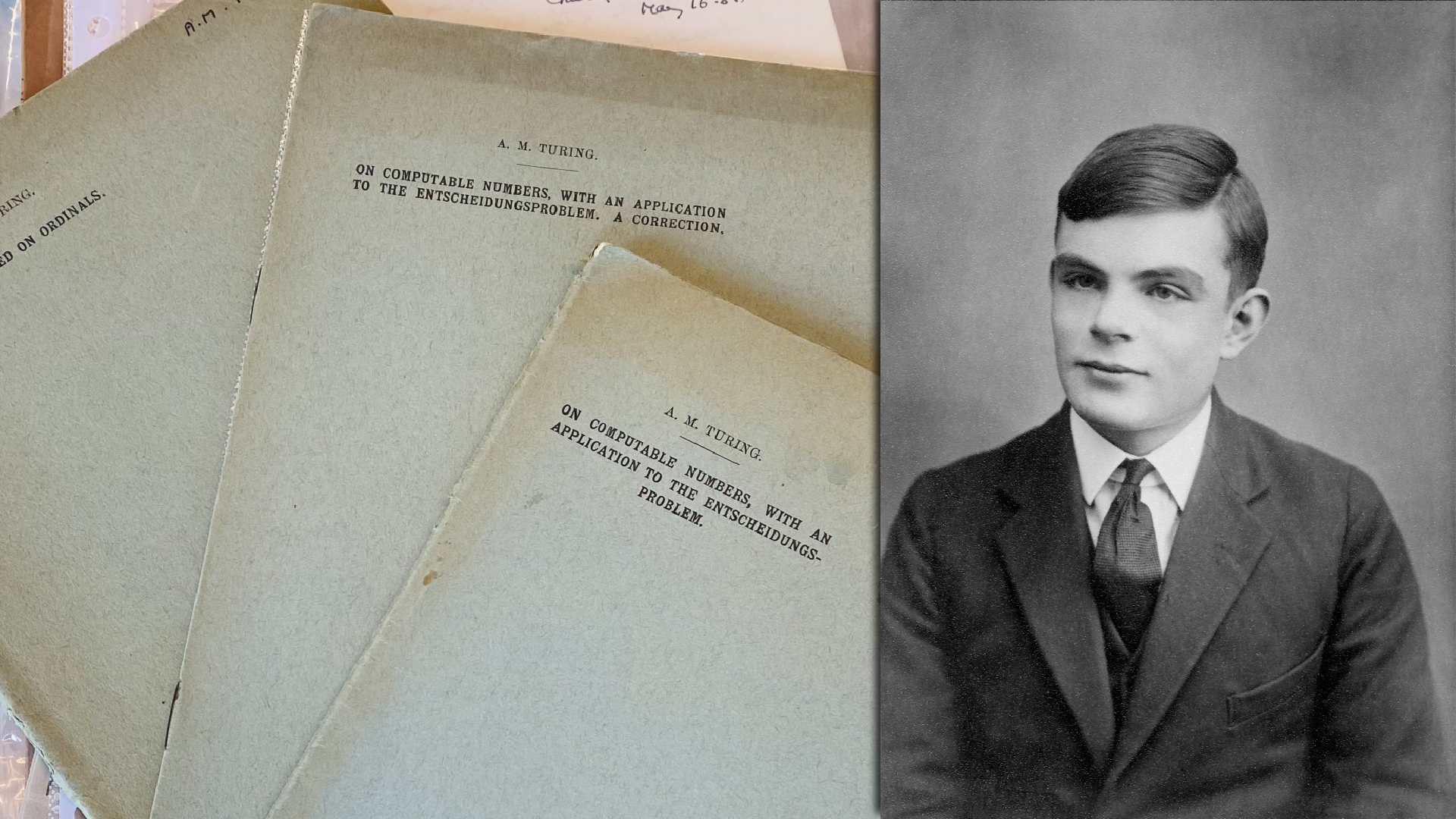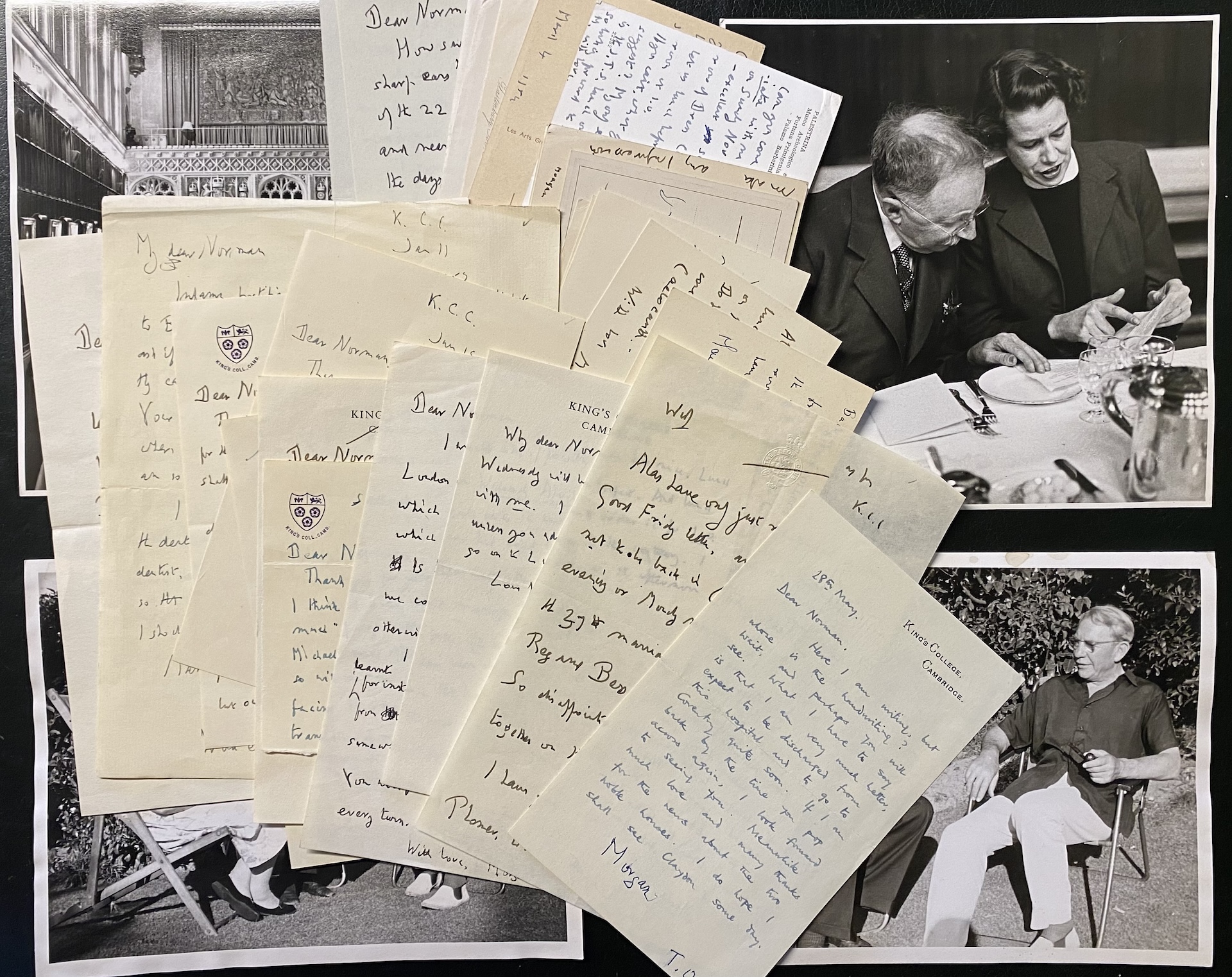Alan Turing's seminal papers, almost destroyed by a shredder, head to auction
The trove of papers from pioneering computer scientist Alan Turing was discovered in a loft.

A trove of Alan Turing's papers, including his own personal copy of his PhD dissertation, is going up for auction June 17 after narrowly avoiding destruction.
The papers were "offprints," or copies of papers distributed in small batches within academia. They include not only Turing's signed dissertation, but also 1937's "On Computable Numbers," considered the first computer programming manual, and 1952's "The Chemical Basis of Morphogenesis," Turing's last major published work.
Turing was an English mathematician, codebreaker and one of the first computer scientists. The newly discovered papers were given by his mother, Ethel Turing, to her son's friend, fellow mathematician Norman Routledge, according to Rare Book Auctions, the company handling the sale.
After Norman's death in 2013, one of his daughters stuck the papers in her own loft. When she moved into a care home almost a decade later, one of her daughters found the papers and considered shredding them. But she asked around the family and decided to get them appraised instead, taking them along to specialists Rare Books Auctions in a carrier bag.
"Nothing could’ve prepared me for what I was about to find in that carrier bag," Rare Books Auction director Jim Spencer said in a statement.
The auction house is offering the papers for individual sale. They are expected to fetch a price of 40,000 to 60,000 British pounds ($54,220 to $81,324) for the copy of "On Computable Numbers," which introduced the idea of a "universal computing machine," and a similar price for the signed dissertation.
“We even have Turing’s first published paper from 1935 – Equivalence of Left and Right Almost Periodicity – which is simply a single sheet of paper," Spencer said.
Get the world’s most fascinating discoveries delivered straight to your inbox.

Ethel Turing made her gift to Routledge in May 1956, nearly two years after Turing died at age 41 on June 7, 1954. After a brilliant career at Princeton University, where he earned his doctorate, and Bletchley Park, the U.K.'s code-breaking agency, Turing worked at the U.K.'s National Physical Laboratory and the University of Manchester, where he designed some of the first forerunners of today's computers.
But in 1952, while reporting a burglary, he acknowledged a sexual relationship with another man to police and was persecuted under an 1885 law that criminalized homosexual acts as "gross indecency." To avoid prison, he was forced to submit to chemical castration — doses of estrogen that had a feminizing effect. He was also denied entry into the United States.
Turing was found dead in his home of cyanide poisoning, which may have been a result of suicide or an accident resulting from a chemistry experiment he was running at the time. His case inspired a 2009 apology from the British government and a 2017 law, known as the "Alan Turing Law," that retroactively pardons people convicted under historical legislation in England and Wales for homosexual acts.

Stephanie Pappas is a contributing writer for Live Science, covering topics ranging from geoscience to archaeology to the human brain and behavior. She was previously a senior writer for Live Science but is now a freelancer based in Denver, Colorado, and regularly contributes to Scientific American and The Monitor, the monthly magazine of the American Psychological Association. Stephanie received a bachelor's degree in psychology from the University of South Carolina and a graduate certificate in science communication from the University of California, Santa Cruz.
You must confirm your public display name before commenting
Please logout and then login again, you will then be prompted to enter your display name.
 Live Science Plus
Live Science Plus





